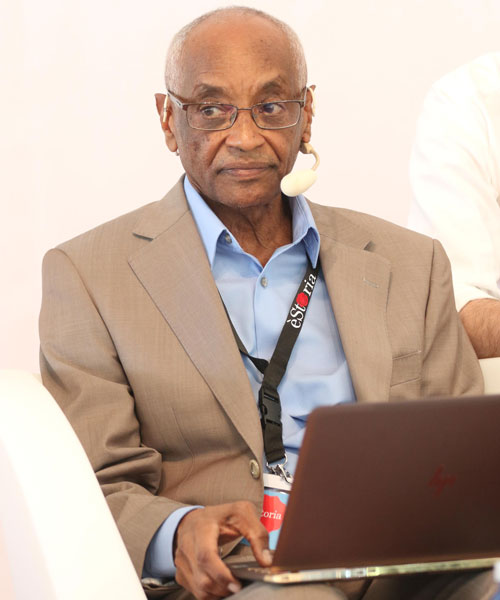
Wars and intense economic inequality are driving skilled scientists from their homes in developing countries, at great cost to those countries – but with great potential benefit for their new countries, former TWAS executive director told an audience in Gorizia, Italy.
"Developing countries continue to lose their best and brightest students and young scientists," Hassan told an audience of more than 250 hundred at Festival èStoria. "Africa is worst affected: there are more highly qualified medical doctors of Ethiopian origin in Chicago than in Ethiopia. How will these countries grow and develop?"
That makes science diplomacy a critically important tool, he said, because it can help countries of the South and the North to develop constructive policy and effective programmes for meeting the needs of scientists, engineers, doctors and advanced students who are displaced by war. Such diplomacy can help countries to collaborate on scientific issues even when their political relationships are strained or broken.
Hassan, a mathematician originally from Sudan, was among the guests of honour at Festival èStoria, an international event which took place 17-20 May. Now it its 14th edition, it offered about 220 talks with more than 400 speakers, attracting an audience of 60 thousands people.
Hassan was the first excutive director for TWAS, and served for 26 years in that post. He currently serves as president of the Sudanese National Academy of Sciences, and as chairman of the Governing Council of the United Nations Technology Bank for the Least Developed Countries.
In his talk, Hassan cited the stark statistics assembled by the United Nations Commissioner on Human Rights: Globally, there were 65 million refugees in 2016. Every minute of the day, 20 people become migrants. And among them are scientists and other researchers who flee their homelands for a future of uncertainty and hardship.
According to the United Nations reproductive health and rights agency (UNFPA), today the number of people living outside their country of birth is larger than at any other time in history. If they all lived in the same place, international migrants would now constitute the world’s fifth most populous country.
"Migrations have always existed," Hassan explained, but today's scientific migrations are mainly involuntary, caused by global inequalities in science and technology capacity across the globe, and by wars and insecurities."
In Hassan's view, international scientific migrations are triggered by a blend of brain drain and "brain gain".
"Quality education, work conditions, poor job prospects and scientific isolation -– let alone wars and political instability – are push factors that prompt scientists to flee their country," explained the Sudanese mathematician. In parallel, there are pull factors – such as world-class universities, better work conditions and also better research facilities – that attract some researchers abroad.
TWAS has been active in exploring the conditions and needs of displaced scientists. Hassan cited an international workshop organised by TWAS's Science Diplomacy programme, which convened policymakers, science leaders, diplomats, refugee administrators, and displaced scientists, while also creating new networks and new cooperation.
"We need to identify refugee scientists and develop a database with their names and areas of expertise, their potential and professional needs," Hassan recommended. "In particular, we should harmonize policies to support education, training and job opportunities" for scientists who land in new countries and hope to resume their research or studies.
The audience also watched an excerpt from "Science in Exile", a documentary directed by Italian filmmaker Nicole Leghissa and produced by TWAS, with support from the Swedish International Development Cooperation Agency (Sida) and Fondo Audiovisivo Friuli Venezia Giulia (the Friuli Venezia Giulia Audiovisual Fund) in Italy. "Science in Exile" portrays the story of four refugee scientists from Syria, Yemen, and Iraq, forced to flee from war and to search for a better place to live and work.
The conversation was chaired by Cristina Serra of the TWAS Public Information Office, translated from English by Peter Szabo.

